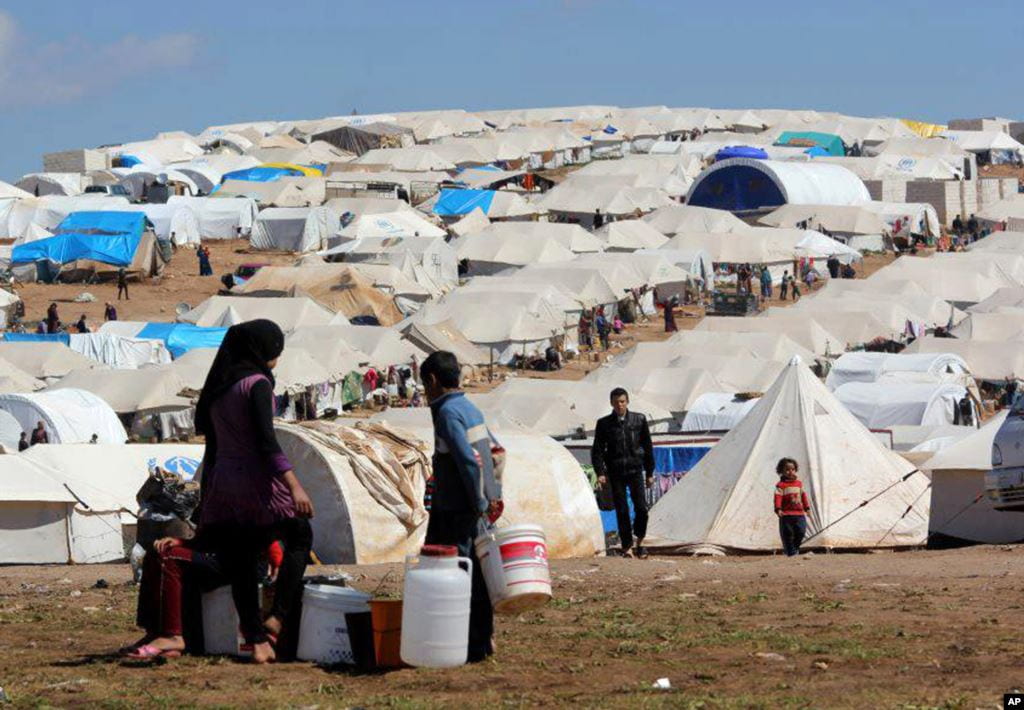The coronavirus has spread to virtually every country of the world, but due to differences in privilege and access to resources, many countries are unable to adequately address this pandemic as well as other countries are. However, for countries in the Middle East, in addition to these differentials, the pandemic has also further exacerbated many preexisting problems that the region faces, namely political, economic, and social unrest. While this outbreak has had ramifications on several facets of life in the Middle East, this blog post will be focusing on the outbreak’s impact on sectarianism and the refugee crisis.

Sectarian Conflict
The Middle East is marred by the Sunni-Shia conflict, and geopolitics are heavily influenced by this divide. Because of this, the divide is often invoked when something disastrous occurs in the region, with each side blaming the other, and the coronavirus outbreak has proven to be no exception. Although the coronavirus has spread to all Middle Eastern countries, Iran, a Shia-majority country, has been disproportionately impacted; as of March 31st, Iran has had 44,605 coronavirus cases and 2,898 deaths, making it one of the countries with the most cases in the world. Further, Iran has now been identified as the source of spread to other Middle Eastern countries; some of the earliest identified cases in the Middle East were all of people who had recently traveled to Qom, one of the holiest cities in Iran. Despite the fact that people were aware of the outbreak in Iran, visitations to holy shrines in Iran were not discouraged, and people continued to travel to these holy sites. Any large gatherings during this time pose a risk, but shrine visitations are especially risky; many people engage in practices at shrines, such as kissing and touching the shrines, that lead to an increased likelihood of spreading. Since the outbreak is speculated to have spread from Qom, the city where one of the holiest shrines, the shrine of Sayyida Fatima al-Zahraa, is located, it is not unlikely that transmission did occur like this.
Because the spread has been identified as coming from Iran, many Sunni-majority countries in the Middle East have used this as an opportunity to justify further prejudice and discrimination against Shia Muslims. For example, Shia Muslims in Saudi Arabia who recently traveled to Iran for shrine visitations were labeled as traitors, leading some to call for their execution. In other countries, such as Lebanon, preexisting sectarian conflict has only gotten worse. It has been claimed that the first case in Lebanon came from Iran, leading many to blame the Shia Muslim population of Lebanon. Further, the Lebanese government continued to allow flights from Iran up until mid-March. Due to this, many have criticized Iran’s influence in Lebanon, specifically its influence on the government.

Refugees in the Middle East
There have been refugees in the Middle East for the past several decades, but the number of refugees significantly increased after the Arab Uprising in 2011. Because refugees often live in destitute conditions, the coronavirus outbreak would prove to be disastrous for them. Once a case of the coronavirus reaches a refugee camp, there will be little to nothing that can be done to stop its spread; large families live within the same tent, usually only five feet apart from other nearby tents. For this reason alone, social distancing is not an option for refugees living in camps, highlighting the intrinsic privilege of others’ ability to practice and call for social distancing. In addition to this problem, refugees also do not have access to the resources necessary for sanitization, namely due to lack of access to clean water. Further, there are often no established healthcare systems within refugee camps, making it difficult for them to access resources that would be needed to aid infected individuals. Even if refugees were to seek health care outside of the camps, it is not guaranteed that they would have access to this care. For example, many refugees are internally displaced in war-torn countries where hospitals have been demolished and those that are still standing are severely lacking in resources. Further, even when refugees resettle in other countries with established health care systems, it is not incorrect to assume that nationals of that country will be given preference over refugees for treatment and access to resources.
Despite the scarcity of resources and bleak outlook for refugee camps, measures have been taken to ensure that refugees are protected as best as they can be from the coronavirus. For example, many refugee camps have been sanitized with anti-bacterial spray. Certain organizations, such as Islamic Relief, have donated supplies, including rubbing alcohol and medicine that treats certain symptoms of the coronavirus, to ensure that if an outbreak does occur within a camp, there are some necessary resources available. Finally, the UNHCR has appealed governments for $33 million in funds to provide refugees access to hygiene kits, protective gear, and sanitary water, among other things, that could help deter the spread of the coronavirus.
Recently, an IHR Intern wrote a blog about racism and discrimination that arises during outbreaks such as this one. While Asians have largely been victims to racism during this period, in the Middle East, Iran and Shia Muslims have been targeted, highlighting that people do indeed try to blame such events on others when, in reality, there is no one that should be blamed. Further, times like this also highlight the level of privilege many of us live in; while we have the privilege to access resources and to distance ourselves from one another, other groups who lack such privileges, namely refugees, cannot practice any of these things. Thus, while we are all impacted by this outbreak, it is important to recognize that many people, in addition to worrying about the coronavirus, face other obstacles during this time as well, and these groups should be kept in mind.
